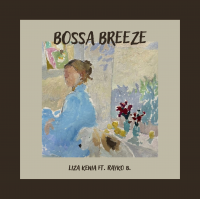In his String Quartet No. 3, Leon Kirchner “set out to produce a meaningful confrontation between the 'new' electronic sounds and those of the traditional string quartet." It marked the first time the Pulitzer Prize went to a piece using electronics.
Leon Kirchner, a Pulitzer Prize-winning composer of expressive, rigorous, atonal yet romantic music, died Thursday of congestive heart failure at his home in New York. He was 90.
A pianist and conductor as well as a composer, Kirchner stood somewhat outside the main musical currents of the late 20th century, forging his own way without being confrontational. A superb craftsman, he wrote music that was emotionally supercharged but also structurally rigorous, very much in the tradition of the Second Viennese School (Arnold Schoenberg and Alban Berg, in particular). Yet Kirchner did not turn to the organizational principles so prevalent in his day: Serialism and the dodecaphonic (or 12-tone) system remained outside his field of inquiry.
Of the prevalent trends of his time, he once wrote that “idea, the precious ore of art, is lost in the jungle of graphs, prepared tapes, feedbacks and cold stylistic minutiae." Nonetheless, he was not above occasional experimentation.
In his String Quartet No. 3, he “set out to produce a meaningful confrontation between the 'new' electronic sounds and those of the traditional string quartet," writing a separate line for electronic tape. The work won him a Pulitzer Prize in 1967 -- marking the first time the Pulitzer went to a piece using electronics.
His most popular course combined musical analysis and performance by students such as cellist Yo-Yo Ma and composer John Adams. He also founded the Harvard Chamber Orchestra.
In his music, Kirchner gradually moved from the large-scale hyperexpressivity of earlier pieces, such as his first piano sonata (1948) and his two piano concertos (1953 and 1963), to more compact utterances. (His fourth and final string quartet, from 2006, is only 13 minutes long.)
Kirchner devoted more than a decade to the composition of “Lily," his sole opera, based on Saul Bellow's novel “Henderson the Rain King." The premiere at New York City Opera in 1977 was accounted a disaster by critics, which was a bitter blow to its creator. He later recast some of the music into other pieces, including a 20-minute work for soprano and chamber orchestra.
Leon Kirchner, a Pulitzer Prize-winning composer of expressive, rigorous, atonal yet romantic music, died Thursday of congestive heart failure at his home in New York. He was 90.
A pianist and conductor as well as a composer, Kirchner stood somewhat outside the main musical currents of the late 20th century, forging his own way without being confrontational. A superb craftsman, he wrote music that was emotionally supercharged but also structurally rigorous, very much in the tradition of the Second Viennese School (Arnold Schoenberg and Alban Berg, in particular). Yet Kirchner did not turn to the organizational principles so prevalent in his day: Serialism and the dodecaphonic (or 12-tone) system remained outside his field of inquiry.
Of the prevalent trends of his time, he once wrote that “idea, the precious ore of art, is lost in the jungle of graphs, prepared tapes, feedbacks and cold stylistic minutiae." Nonetheless, he was not above occasional experimentation.
In his String Quartet No. 3, he “set out to produce a meaningful confrontation between the 'new' electronic sounds and those of the traditional string quartet," writing a separate line for electronic tape. The work won him a Pulitzer Prize in 1967 -- marking the first time the Pulitzer went to a piece using electronics.
His most popular course combined musical analysis and performance by students such as cellist Yo-Yo Ma and composer John Adams. He also founded the Harvard Chamber Orchestra.
In his music, Kirchner gradually moved from the large-scale hyperexpressivity of earlier pieces, such as his first piano sonata (1948) and his two piano concertos (1953 and 1963), to more compact utterances. (His fourth and final string quartet, from 2006, is only 13 minutes long.)
Kirchner devoted more than a decade to the composition of “Lily," his sole opera, based on Saul Bellow's novel “Henderson the Rain King." The premiere at New York City Opera in 1977 was accounted a disaster by critics, which was a bitter blow to its creator. He later recast some of the music into other pieces, including a 20-minute work for soprano and chamber orchestra.



























